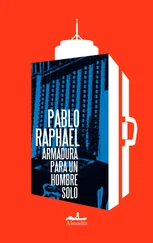‘I’m sorry,’ he said, vaguely.
Soon afterwards, she began to snore, and he did not know whether she had heard him.
He put an arm around her. The noise outside no longer seemed to interfere, and he drifted into sleep himself.
It was announced in the factory that Comrade Denov’s duties had been curtailed. Ulrich rushed to his office, and found him packing up his things. Denov did not stop what he was doing, but asked him simply,
‘What did you tell them, comrade?’
‘What do you mean?’
Denov shook his head significantly, and Ulrich’s pent-up resentment poured out.
‘How can you look me in the eye, after everything you’ve done? All the people you’ve betrayed with your stealing. We worked like animals for all these years to meet our quotas, and you sold our barium chloride to foreign companies! You hoarded raw materials and sold them on the black market. You see: I know everything. How much money you must have piled up!’
‘You’ve been to my house many times. Did you see me lining my pockets? Did you see cars or jewellery? No. Do you know where that money went? With all your accounting genius, did you ever ask yourself where the money came from for your new baths, your new reactors? Comrade Denov, we need a heating system so the pipes don’t freeze in the winter. We need new pumps. We need this, we need that . It was you who spent that money, and you did it without a care in the world. What did you think: that I built up all that surplus by obeying the rules?’
Ulrich sat down.
‘You should have come to me,’ continued Denov. ‘You understand accounting ledgers well enough, like you understand chemical reactions. But human behaviour is much more complicated.’
‘But it was not right, what you did.’ Ulrich struggled. ‘Even if it wasn’t for yourself.’
Denov spoke without emotion.
‘Do you know how this system works? The numbers they come up with in the Planning Commission are pure fiction. When they say a ton of barium chloride will sell for so many leva, do you think that number has any significance? A bureaucrat comes to work on his mother’s eightieth birthday and he thinks, Eighty is a good number , so he writes it in a column, and for ever afterward we are forced to sell the product of our factory at eighty leva a ton, though it may cost three hundred to produce. This system is fatal. If you don’t have the ingenuity to invent another one, you die. And for this you inform on me to the police. I hope they rewarded you well, Comrade Ulrich.’
Ulrich was dazzled by the sun on the floor. He imagined himself jumping through the glass of Denov’s study window, out into the light, where the scattered words of this conversation would be no more than distant tremors on a clear day. He imagined falling down into the mine pit and smashing on the rocks, and what a release that would be.
He imagined himself standing far away, as if the whole world were no more than a small band of horses tossing heads in a far-off field, and he could let the nearby vastness of the wind in the grass take him over, sweeping him this way and that.
He asked thinly,
‘What will you do now?’
‘What do you think I will do?’ said Denov, standing on a chair and lifting dusty volumes down from the top shelf. ‘I have been appointed to run a much bigger factory near Varna. I will make coatings for satellites. I will have a big house and a driver, and my wife will be happy that I do not smell when I come home from work.’
Denov put the last books in a box and sat behind his desk.
‘They wanted information about me. They always want information. But they didn’t want to destroy me. They wanted to use me. People like me who supply the energy to our socialism. Do you think they value idiots who follow all the rules? They like people who can take a hopeless project, like this factory, and turn it into a success. Even if it means exporting to France.’
Ulrich stood up weakly. He wanted to leave. Denov reached out for the hand at the end of his limp arm and shook it.
‘Goodbye, comrade.’
Ulrich remembers that the factory began to make the wrong sounds, and he developed headaches when at work.
The mills where the ores were ground became deafening, the smell of chlorides suddenly unbearable. The slurry heap was like a mountain after twenty years.
Denov’s young replacement did not consult Ulrich about technical decisions. When Ulrich complained, he explained that he did not think he was competent to oversee a modern factory of this scale.
Ulrich came to work every day but did nothing. He was not asked to attend discussions, nor consulted on any issue, and he was prevented from intervening in the factory’s routine. He walked around giving his approvals to what he saw, but it was like a man conducting an orchestra on the radio.
Idle, he devised a rhapsody of chemicals for the worker who sang in the shutdowns, a scientific spectacle full of mystery and delight. He approached her at her station and invited her to take a walk with him to an abandoned place where he could set it up. Up close, her youth made him conscious of his thinning hair, and his sagging neck. She looked at him with alarm, and refused.
He began to steal regularly from the factory’s small laboratory. Mostly little things, here and there. Old valves from gas canisters. Rubber tubing. Every kind of safety equipment: goggles, gloves, breathing masks. He stole an old microscope that had lain unused for years. There was no dishonour in such behaviour. His old restraining principles were childish affectations, and these objects, he felt, were owed to him.
Ulrich was presented with a date for his retirement. When the day came, the director called him into his office and thanked him for all his work. He told him they were increasing security at the factory and that if Ulrich were to present himself there after that day he would not be able to gain entry. Afterwards there was a quick ceremony in the forecourt of the factory, where the director presented him with a bottle of rakia and spoke to him as if he were a sick person. Several people came up to Ulrich and shook his hand. Then they escorted him to the bus.
24
THE LAST OF ULRICH’S contemporaries from Berlin, some of whom had long since become world famous, died.
Bulgaria built its own oil refineries in Pleven and Bourgas.
The economy began to fail in conspicuous ways, and the shops ran empty.
In those years, the Sunny Beach resort was opened on the Black Sea coast, and the new foreign tourists came to lie in the Bulgarian sun. The East Germans covered the costs of their vacation by selling jeans and Nivea cream to Bulgarians, proving that years of communism had done little to blot out the secrets of trade.
It was the era when the Ilyushins and Tupolevs flown by Balkan Bulgaria Airlines never stopped falling out of the sky, and when Bulgaria took the Olympic medals for weightlifting and wrestling.
Khrushchev, Stravinsky and Louis Armstrong died in a cluster, and Duke Ellington soon after. Shostakovich died too.
Pasha Hristova, whose pop songs drove Ulrich crazy in the house, came down in an aeroplane.
Ulrich’s former employer, Ivan Stefanov, died. Boris’s old friend, Georgi, died of a heart attack while leaving a banquet for party officials. He was sixty-eight years old.
Ulrich’s appearance drew away from all the old photographs, and he began to look more like his elderly father than himself. And Elizaveta was diagnosed with cancer of the lung.
Suddenly their remaining time together seemed short, though she was anyway approaching ninety years of age.
On her birthday, Ulrich proposed a surprise expedition. He prepared some food early in the morning, and helped her brush her hair. He borrowed a car from a man he knew and drove out of Sofia along the E81.
Читать дальше
Конец ознакомительного отрывка
Купить книгу












